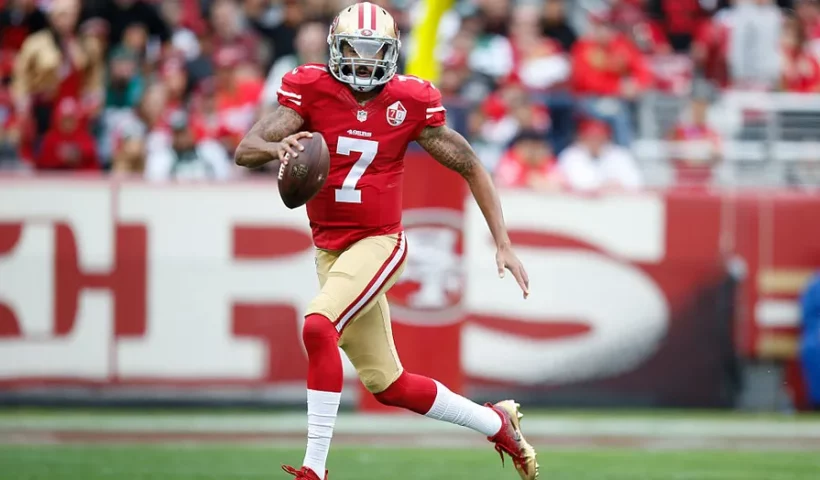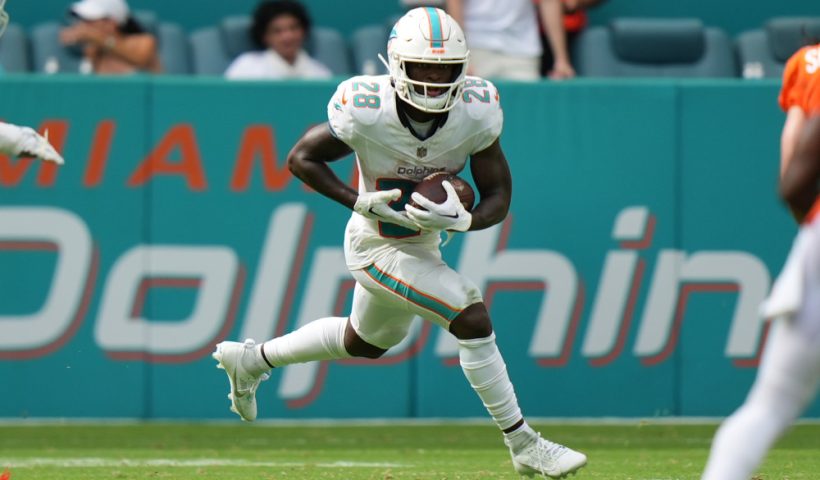Man United and Dortmund are in negotiations to get Jadon Sancho on a loan, but his $340,000 weekly wage is still a barrier.
The return of Jadon Sancho on loan has sparked negotiations between Borussia Dortmund and Manchester United. Sancho made a name for himself as one of…
View More Man United and Dortmund are in negotiations to get Jadon Sancho on a loan, but his $340,000 weekly wage is still a barrier.2023 MLB playoffs: Six things we learned from wild-card openers as Brewers blow chances, Twins snap skid
The 2023 MLB postseason got underway Tuesday with the Diamondbacks, Phillies, Twins and Rangers notching victories in Game 1 of their respective Wild Card Series.…
View More 2023 MLB playoffs: Six things we learned from wild-card openers as Brewers blow chances, Twins snap skidBen Simmons is anticipated to participate fully in Nets training camp
Due to a number of ailments, Simmons played in just 42 games in the previous season. Ben Simmons, a guard with the Brooklyn Nets, is…
View More Ben Simmons is anticipated to participate fully in Nets training campAll-Star point guard Damian Lillard was traded to the Bucks as part of a three-team transaction, according to the report
For the Miami Heat, Lillard had hoped to be traded. According to Adrian Wojnarowski, Damian Lillard will be moved to the Milwaukee Bucks as part…
View More All-Star point guard Damian Lillard was traded to the Bucks as part of a three-team transaction, according to the reportMike Dunleavy Jr., general manager of the Warriors, discusses why the franchise feels “targeted” by some of the NBA’s new regulations
This summer, the NBA implemented new expenditure and load management guidelines. The NBA’s most successful club during the past ten years, without a doubt, has…
View More Mike Dunleavy Jr., general manager of the Warriors, discusses why the franchise feels “targeted” by some of the NBA’s new regulationsXabi Alonso is a leading candidate to succeed Carlo Ancelotti at Real Madrid because of his success at Bayer Leverkusen
According to at least one rumour, the former Madrid midfielder has already been named as Ancelotti’s replacement. Although the Spanish season has only been going…
View More Xabi Alonso is a leading candidate to succeed Carlo Ancelotti at Real Madrid because of his success at Bayer LeverkusenInter Miami’s on-field prowess is matched by an off-field show thanks to Lionel Messi’s passion
Messi’s exploits in Miami appear to generate just as much media attention as his on-field performances. The excitement surrounding Lionel Messi’s presence in the United…
View More Inter Miami’s on-field prowess is matched by an off-field show thanks to Lionel Messi’s passionIn a letter to the Jets, Colin Kaepernick asks to be added to the practise squad in New York
Joe Douglas, the Jets general manager, heard from Kaepernick. With the addition of four-time NFL MVP Aaron Rodgers to their roster this offseason, the New…
View More In a letter to the Jets, Colin Kaepernick asks to be added to the practise squad in New YorkHow one team has emerged as the current favourite to sign MLB’s top player in the Shohei Ohtani free agency period
Even with an elbow injury, Ohtani is anticipated to sign a deal this offseason that is around $500M. The regular season of Major League Baseball…
View More How one team has emerged as the current favourite to sign MLB’s top player in the Shohei Ohtani free agency periodNext Gen statistics support Raheem Mostert’s claim that he is the Dolphins’ fastest player, outpacing Tyreek Hill and Jaylen Waddle
The fastest player on the fastest team, according to Mostert The Miami Dolphins are the quickest team in the NFL, as shown by the fact…
View More Next Gen statistics support Raheem Mostert’s claim that he is the Dolphins’ fastest player, outpacing Tyreek Hill and Jaylen Waddle








